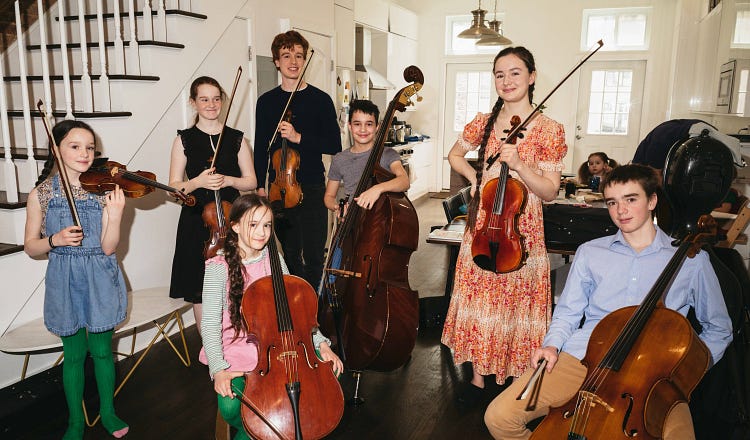The von Trapps of Harlem

L to R: Chloe, Anna, Naomi, Josiah, Noah, Pearl, Melody (background), and Elijah de la Motte in their living room in Harlem. (Alex S. K. Brown for The Free Press)
Can ten earnest kids playing Bach become the next Kardashians?
246
When I enter the de la Mottes’ home—a three-floor, red brick townhouse in Harlem, around the corner from the Apollo Theater and down the block from a Verizon store—the somber thrum of a double bass echoes upstairs.
I’m greeted by Amber, 43, who looks plucked straight out of an old-timey hearth catalog in a pleated emerald skirt and white blouse, her lon…
Enjoying the story?
Enter your email to read this article and receive our daily newsletter.
Error
Already have an account?
Sign In














